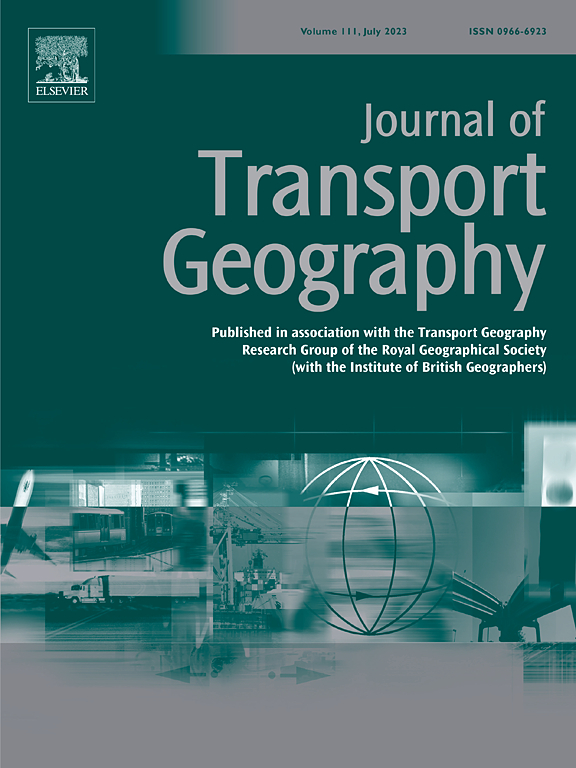Mobility transition through labs in real-world contexts. The contribution of transdisciplinary approaches in creating sustainable transportation systems
IF 5.7
2区 工程技术
Q1 ECONOMICS
引用次数: 0
Abstract
Major transformations are needed to achieve more sustainable transport practices. Taking the persistence of transport systems into account, a variety of participatory and experimental approaches have emerged, such as urban living labs and real-world labs, to develop solutions in a transdisciplinary collaboration. Despite the anticipated importance of such transdisciplinary approaches, there remains a gap in the empirical evaluation of their effectiveness in driving sustainable change. To better understand the potential of such approaches, we used a scoping review of existing literature on (1) the extent to which transdisciplinary lab approaches are used in transportation, (2) how they are conducted in terms of transdisciplinary collaboration and (3) how outcomes are measured and evaluated. The results show that transdisciplinary labs are still generally a marginal but growing approach in the field of transportation. They cover a wide range from technology-centred to socio-ecological approaches with varying levels of stakeholder involvement. We highlight the potential of transdisciplinary labs to bridge long-standing participation gaps within transportation planning. Yet, robust evaluation of results within these approaches is limited. This constrains the empirical significance of the results and hinders transferability and scalability.
求助全文
约1分钟内获得全文
求助全文
来源期刊

Journal of Transport Geography
Multiple-
CiteScore
11.50
自引率
11.50%
发文量
197
期刊介绍:
A major resurgence has occurred in transport geography in the wake of political and policy changes, huge transport infrastructure projects and responses to urban traffic congestion. The Journal of Transport Geography provides a central focus for developments in this rapidly expanding sub-discipline.
 求助内容:
求助内容: 应助结果提醒方式:
应助结果提醒方式:


